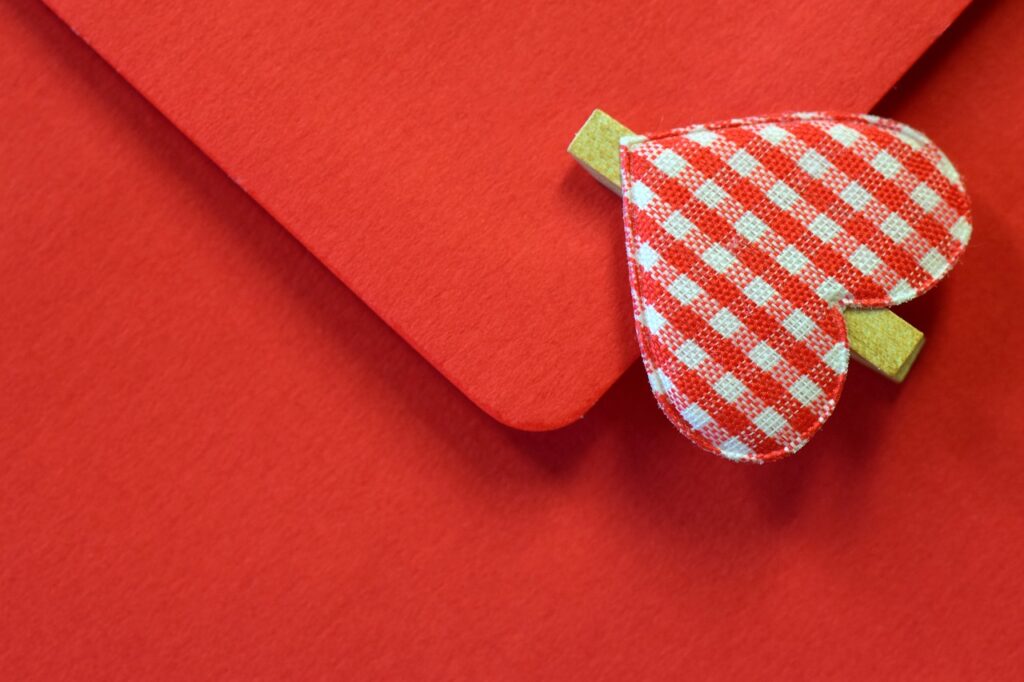On the 11th July 2021, I was out walking with my partner, Simon, when I fell to the ground, my heart had stopped beating. Simon was the first link in my chain of survival and due to his actions, performing CPR and calling 999, I’m here to be able to write this to you now.
No cause has been found for my SCA so, like many others, I’m in the idiopathic category.
Impact

Tomorrow will be the first Valentine’s Day since my cardiac arrest. Images of hearts are everywhere and love and relationships are at the forefront of our minds. Love it or hate it, Valentine’s Day got me thinking about something that it’s taken me a while to understand and accept.
An SCA does significantly impact relationships.
Yes, it’s not talked about much and no, it’s not just you. It’s something that is feared and whispered about and, understandably, worried about. It’s something that people feel shouldn’t affect them or feel guilty about if it does.
If I could tell the world anything, it would be that CARDIAC ARREST DOES SIGNIFICANTLY IMPACT RELATIONSHIPS AND THAT’S NORMAL.
See I said it louder for those at the back!
With this in mind, I wanted to write this for my partner, Simon, but also for all of you loved ones out there who have cared about, supported and been there for an SCA survivor.
It’s my Valentine’s love letter to you.
A love letter

Dearest loved one,
How are you doing?
It’s been a rough old ride, hasn’t it?
First of all, I’d like to say that it was never my intention to leave you. I’m sorry that I stepped out of the room for a bit, I like that euphemism for an SCA. Know that from the moment that it happened, I was, I’m sure, trying to get back home to you.
Wherever we were and whatever we were doing, it wasn’t your fault, or mine either for that matter. It seems that these things happen sometimes and sometimes there seems to be no cause that can be found.
If you did CPR thank you.
Thank you.
Thank you.
However, you did it, thank you.
If you broke ribs or banged my head, or couldn’t quite remember how to do it or didn’t start doing it immediately, thank you.
You did a great job there’s nothing else to say.
If you didn’t or couldn’t do CPR it’s ok.
I know that you did everything that you could.
Thank you for all that you’ve done for me.
I really do feel grateful in a way that I don’t have the words to communicate.
I understand how shocking and scary this has been for you and, especially in the first few days after I came round, weird and upsetting. You thought that if I’d just wake up then all would be fine but no one told you about how a hypoxic brain injury affects people. No one really explained why it was that I thought I was absolutely fine or why I couldn’t remember things or that I was convinced that I’d been in a car accident or fallen off a horse!
Thank you for your patience and your endless reminders.
Being in the hospital during Covid was very lonely. Thank you for coming to see me every day when no one else was allowed to. I’m so sorry if you couldn’t visit, I have no polite words for this virus. I know that you were sending all of your love.
I know that it has been both deeply traumatic and on the other end of the scale, incredibly boring for you as I’ve tried to deal with what has happened to me and my SCA became my main focus for a while. I’m sorry that SCA put you in the position of a supportive sidekick.




That’s not how I see you.
I’m actually deeply relieved that it’s not all about me and I hated all the attention.
You matter to me more than you know and it’s my deep joy to see you shine in the world. Your health, your life, your joy, your work, your hopes and dreams, plans and aspirations matter to me. My SCA isn’t allowed to suck all the air out of the room and be the only thing that we think or talk about.
I’m sorry that my mental health hasn’t been good since the SCA. I’m sorry that your mental health was affected too. I’ve learned that an SCA often brings with it a lovely side order of anxiety, depression and PTSD. It’s been really hard to carry that stuff between us and I know that we are both very tired. I’m glad that we now have allies to help bear the load. I’m glad that we now know that it isn’t just us that it happens to and that mental health consequences are normal after an SCA and need treatment.
I know that you worry about me, that’s understandable and normal and actually ok. Please remember that I’m here to support you with that too because, SCA or not, we were and still are a great team.
All my love to you (all)
Ruth xxx
Ed, and if this post resonates with you, you might find the resources on the Headway website on “Relationships after a brain injury” useful.
You might also find these resources helpful:
Counselling
Being part of a resuscitation attempt


Thank you for sharing the words I couldn’t find. I wish I had been able to write this. With much love, respect and gratitude.
This is just wonderful and sums up how so many of us feel and have experienced SCA. Thank you so much for writing it and all the very best for your new life. xx
Love the letter Ruth. It sums up what many of us feel. On Valentine’s last year I was actually in hospital following a heart attack and stent operation. Little did any of us know what was just around the corner. I think it is important to remember it is not all about us. The ripples go far and wide. All the best to you both.
Before I start this, let me preface by responding to the most common thing people have said to me recently: “But she’s your ex-wife, why do you care?” – well, it’s because we don’t have to hate our exes. Since we divorced ten years ago, we have become closer than we ever were married. We share children, we speak every day, if I ever broke, she would always, without hesitation, be the one to help pick up the pieces. She’s more than a ‘wife’ to me. Neither of us entered into other relationships of any significance.
On 14 Feb, 2022, while she was at home with my daughters, she got up from the couch, said she didn’t feel well and dropped instantly. The girls were obviously terrified, but the older one started CPR from her vague recollection of how to do it, while the younger one co-ordinated emergency services. The ambulance arrived within 9 minutes, by the time I got there the paramedics were doing there thing, and the girls were in hysterics as the defibrilator was used 15 times. Eventually, she was stabilised enough for an emergency angio where 2 stents were placed, and her heart has not skipped a beat since.
They induced hypothermia and stuck her in a medically induced coma, which she was in for a week. By day 3 she could breathe on her own.
At the end of week 2 she was moved out of the critical care unit and into the cardio ward. She is awake, it seems, but it’s very much a case of ‘lights are on and no-one’s home’. THe other day she appeared to be somewhat lucid, trying to talk, but not forming words clearly at all. She was focused, somewhat alert and even appeared to have a sense of humour.
But now she’s kinda stalled for the last 4 days. Much more drowsy nd ddozy, far, far less responsive – it’s as if she woke up for that 45 minutes, spent all the energy and needs a week to recover from that.
This is – obivously – entirely uncharted territory for me, and I know full well that every single person is different, but whereabout in a recovery process should I be worrying about this being permanent?
Sorry to hear about your situation. Recovery from a cardiac arrest should be thought of in the terms of weeks, months and maybe even years and the immediate period after the event can be very much up and down. I would suggest you see our publications page that has some resources that could help. https://www.suddencardiacarrestuk.org/get-support/publications/ I would also suggest joining our peer support groups where you can get further information and help https://www.facebook.com/groups/SuddenCardiacArrestUK